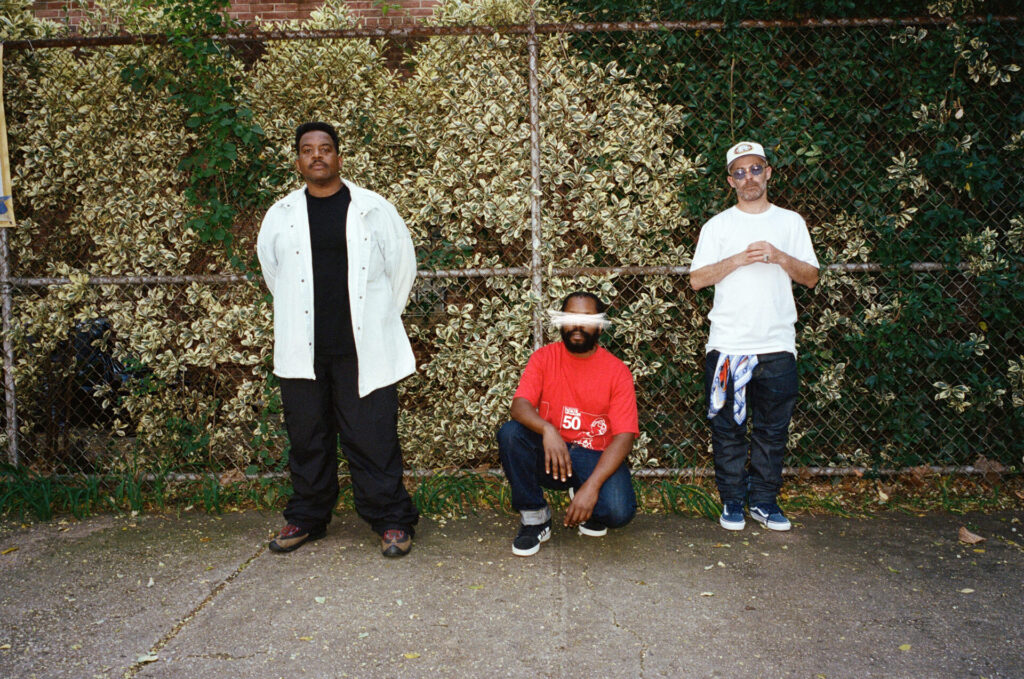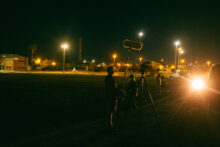Horsham in West Sussex is a bracingly middle-class market town manifested, seemingly, from a flag-raiser’s most libidinal fantasies. Ten minutes away sits a paintball park, nestled beneath the nearby pine trees. Places like these are familiar to any British teenager, the kind of attraction frequented at either 17 or 32 and vanished from the psyche entirely for the duration of the years between. Like most parks like it, this one is strewn with approximations of war. Khaki canvases, corrugated bunkers, reactive targets and – unique to this particular course – the shell of a helicopter, gutted to the bones and positioned as the centre-point for intense woodland shoot-outs.
As an object, it’s innocuous enough – thrilling even, when you’re ducked behind it, dodging fake fire. But the helicopter is not a facsimile, it’s a real artifact of war. In 2023 some military historians called the park’s owner to let him know about its origin: the Chilean military. The fuselage is from a Puma built by the Pinochet regime. In the 70s the chopper had served a different role: political dissidents pulled from their homes in the dead of night, flown out to sea and cast into the dark waters, vanished without a trace. The Death Flights, as they came to be known, have become an enduring image of the particular cruelty of a particularly cruel regime, and yet here is one of those same helicopters, sat in the bristling English countryside, helping a bunch of teenagers enact a facsimile of war.
This image, of a death-ship turned basecamp, is the exact kind of casual cruelty which is the lifeblood of Armand Hammer’s music: extraordinary and everyday at the exact same time. I was reminded of the West Sussex relic for the first time in months while listening to their new album, Mercy. Billy Woods evokes the airborne disappearances of the Chilean junta to grip at our blankets of civility and yank. “The peoplez is fed from the palm of a tyrant,” he raps, “luxuriously slow violence like Pinochet’s best pilots / death flights with the sun behind us / the South Atlantic a carpet of shimmering diamonds”.
These real-world metaphors, deployed to prod at the terror which exists beneath a great many of our daily comforts, are the broiling belly of the world which Woods and compatriot MC ELUCID have been deepening for thirteen years and counting. In their music, the ramifications of colonialism and unchecked capital are not felt in reality-shattering violence but as daily inanities, rudely interfering with the bubbles of our lives. In almost every review of their albums ever written the word “paranoia” invariably appears, but that’s only half the story. At the bottom of it all, Armand Hammer’s music actually asks: is it really paranoia, if the paranoia is right?
For two artists firmly in their middle age, rapping byzantine, referential rhymes over beats which pay no mind to the zeitgeist, ELUCID and Woods have found themselves in an interesting spot: kind of famous. They headline festivals. They appear in GQ and The New York Times. It’s an unlikely fate for music as challenging as theirs, but the acclaim is for good reason. Mercy is, remarkably, their seventh stellar album in a row.
Though their worldview has hardly shifted, Mercy is also evidence that their methods have softened slightly. There are no verses here as fiery as the fiercest in either man’s back catalogue, be it ELUCID’s cataclysmic opening verse on ‘Microdose’ (from 2017’s Rome) or Woods’ own ‘Pompeii’. Instead, rageful indigence has been replaced with a tone of creeping insidiousness, one which suggests that the only thing they’ve come to trust since their 2013 debut, Race Music, is that nothing is to be trusted. As ELUCID deadpans on ‘Nil By Mouth’, “everything justified when you’re starving right?” Both men contend with their rising fame, predictably, with suspicion. Two of the first three songs here are named after exploited or under-appreciated Black entertainers: ambient pioneer Laraaji, who only found acclaim in his seventies, and Calypso Jean, the one-time stage name of Black nationalist Louis Farrakhan.
There were two co-signs which anointed Armand Hammer’s solidifying cult-status. One was Earl Sweatshirt, a millennial eccentric whose voice appears here on ‘California Games’. The other is
The Alchemist, a producer who inspires unrestrained exaltation in the internet’s most online rap fans but a figure of his own internal contradictions: at once one of the modern era’s most valorised beat-makers but a collaborator whose most extraordinary talent is the ability to slip deftly into the background, lacing briefcases of opulent, funk-inflected beats unobtrusive enough that MCs from different rap universes can locate wide-open pockets within them.
Unlike some of Armand Hammer’s other collaborators – the likes of DJ Haram, Preservation and Kenny Segal, who make mind-warping, time-twisting beats which challenge both the duo’s verbal dexterity and their perception as boom-bap throwbacks – The Alchemist makes for an inconspicuous partner, creating eerie soundscapes upon which Woods and ELUCID make things a whole lot eerier. And make no mistake, there are some hair-raising cuts here, filled with allusions to exploding pagers, a bloody massacre on ‘u know my body’ and, on the aforementioned ‘Calypso Jean’, two startling verses in which ELUCID draws a line between baptismal water and someone swimming among the cascading torrent of a river-border crossing, sniper rifles aimed at their skull.
But while it would be easy to portray Mercy as all warfare and bloodshed, Armand Hammer are equally adept at turning the world suddenly inward, punctuating political madness with moments of real poignance. The best example here is ‘Dogeared’, a song telling a beautiful story in which a friend of Woods’ asks him “what is the role of the poet in times like this?” It proves to be one of those questions which throws your whole week off its axis. Woods carries it with him for days, daydreaming about it while watching crackling bacon and helping his son bound between New York City puddles. At the end of the song the friend calls him again. “You got an answer for me yet?” He says: “I’m still grappling”. For all of the album’s visceral images, it’s not the ones of horror or existential angst which linger longest but rather these little details of everyday joy. Sizzling bacon and the sight of his son bounding between New York City puddles. The small mercies.



